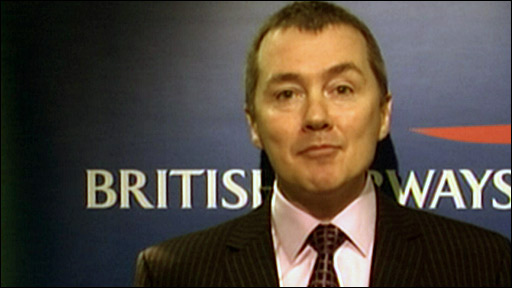BA CEO Insists Air Passenger Duty Will Damage UK Travel Industry

BA CEO Insists Air Passenger Duty Will Damage UK Travel Industry
A planned hike in Air Passenger Duty (APD) will hit the UK tourism industry and deter people from visiting the country, according to airline boss Willie Walsh.
In an interview with Sky News, Mr. Walsh said he thought Chancellor George Osborne's decision to increase APD from next April would put an unfair burden on airlines.
Walsh, who is the chief executive of British Airways' parent company IAG, said it was wrong to increase APD when airlines were trying to attract business from the rapidly developing economies of India and China.
Mr. Walsh also claimed that 'not a penny' from the levy was spent on the environment. “The first thing to remember is that it is not a green tax. The Government has made that clear. This has nothing to do with the environment. Not a penny of this tax goes to environmental issues, he told Sky News.
'Why I believe this is damaging is that it is making the UK uncompetitive. It's making it expensive to do business here, it is deterring tourists from coming to the UK, it is deterring business people from coming to the UK. That's the message I get when I travel around the world. When I go to India and China, two of the big economies that we want to attract in to the UK, they are telling me that the UK is becoming too expensive. They highlight this tax as one of the reasons they believe they can do business better elsewhere.”
Asked about a new airport in the Thames estuary, he said that he did not think the project - which could cost as much as £60 billion - was financially viable as he warned that Heathrow would soon lose its title as the world's largest airport to Dubai.
He said: Financially, I just don't see how it is going to be funded. What people sometimes don't understand is that all airport development in the UK is funded by the airlines and the airports. They are not funded by the taxpayer. To get this new airport you are going to have to get some private investment. To find someone in the current environment to put up £50 or £60 billion, I think is just not a credible proposition.”
Willie Walsh said the APD rise would make the UK “uncompetitive.” The air duty, dubbed “the poll tax of the skies”, is currently based on distance travelled and is separated into four bands.
Economy flights up to 2,000 miles could see an increase of £4 - from £12 to £16 - which means a family of four would have to pay £64 instead of £48. If the same family travelled to Australia also in economy, they would have to pay £380. In a joint statement, the bosses of four airlines - Virgin Atlantic, easyJet, Ryanair and British Airways' parent company IAG - condemned the move.
They said: “In the cause of UK economic recovery, APD is an own goal - and the Chancellor has just scored another one. “By increasing this tax by double the rate of inflation, he is further deterring inbound tourism and foreign investment, and choking off yet more job opportunities for young people.”
Chancellor George Osborne admitted in a letter to European airport bosses that the tax was “fundamentally a revenue raising duty' which provides Treasury coffers with £2.5 billion a year. The Airport Operators Association said the APD decision was 'bad for jobs, bad for growth and bad for passengers.”
Mark Tanzer, chief executive of travel organization ABTA, said: “At a time when the UK economy needs jobs and growth, hiking taxes on aviation, a catalyst of economic growth, flies in the face of basic economics. This double-inflation increase will damage UK growth and drive down UK air passenger numbers when we need to stimulate the economy. APD is a tax on tourism and a tax on business travel.”













